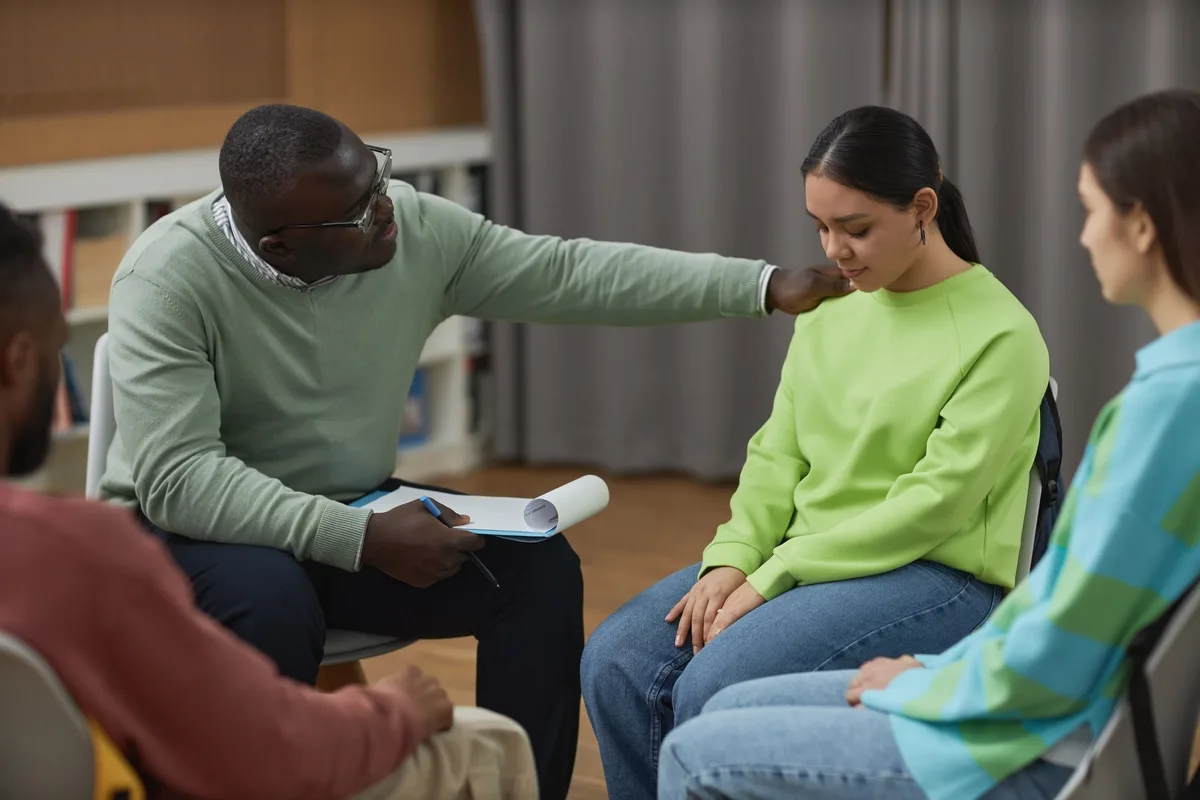24/7 Helpline:
(866) 899-221924/7 Helpline:
(866) 899-2219
Learn more about PTSD Treatment centers in Fairmont
PTSD Treatment in Other Cities

Other Insurance Options

Coventry Health Care

Highmark

Health Choice

BlueShield

Magellan Health

Ceridian

Self-pay options

Regence

Evernorth

Absolute Total Care

Sutter

CareSource

Health Net

Magellan

BlueCross

Private insurance

PHCS Network

Optima

MVP Healthcare

Aetna

Robeson Healthcare Corporation
Robeson Healthcare Corporation - Walnut Street is a non-profit rehab located in Fairmont, North Caro...

Youth Academy
Located in Fairmont, West Virginia, Youth Academy is a drug and alcohol treatment center that suppor...

Valley Healthcare System – ACT Unit
Valley Healthcare System–ACT Unit, in Fairmont, West Virginia, is a comprehensive drug and alcohol r...

Family Services – Alcohol and Drug Counseling
Family Services – Alcohol and Drug Counseling is a private rehab located in Fairmont, West Virginia....





House of Hope – Fairmont Program
House of Hope - Fairmont Program offers a residential program for those men and women who are strugg...

Serenity Behavioral Health
Serenity Behavioral Health is a private rehab located in Fairmont, North Carolina. Serenity Behavior...

New Beginnings Program
New Beginnings Program offers inpatient treatment for women with alcohol and/or substance addiction....

United Summit Center
United Summit Center is a non-profit rehab located in Fairmont, West Virginia. United Summit Center ...


